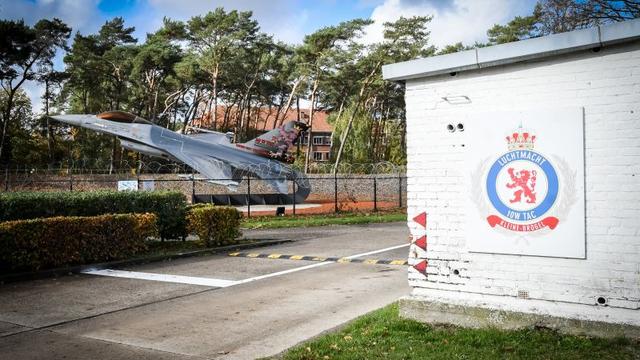2026-01-24 21:01:36
It occurred to me that I have not expressed this in a while or quite this way…
I truly appreciate almost* every one of my followers. I don’t lock my account for various neurotic reasons but I do *curate* my followers for humanness and other vibes. I don’t “follow back” much, as my firehose is already too much. I block or at least soft-block most new followers.
*: except for the handful who seem to keep {un,re}-following as some dumb engagement farming.
2025-11-21 01:08:49
On Wednesday night, Nvidia released its highly anticipated/dreaded quarterly earnings report
— and Wall Street let out a sigh of relief,
— at least initially.
The multitrillion dollar chipmaker at the center of the AI boom reported
a ludicrous $57 billion in quarterly revenue,
netting it nearly $32 billion in profit.
Compared to the same quarter from the year before,
it amounted to a 62 percent surge in sales,
and a further 65 percent increase …
2026-01-14 18:30:49
I know everyone’s already dragging the living shit out of this already but 🤷🏻♀️:
All ICE/BP should have:
Clearly marked vehicles
Clearly marked names on uniforms (large TEXT for both)
ID/badges
Dismissal and/or prosecution for failing to comply.
QR codes are just unneeded “tech” complication
The current regime talks a lot of shit about ID being required to vote, but is fine with armed agents of the govt having less ID than a teen trying (and failing) to…
2025-11-14 17:36:08
And on the following build, on May 11th, it’s already removed :(
#VRParadise
2025-11-16 20:50:19
Inspections by Taiwan's National Security Bureau (NSB) of five Chinese generative AI apps -- Deepseek, Doubao (豆包), Yiyan (文心一言), Tongyi (通義千問), and Yuanbao (騰訊元寶) -- found violations of users' communication security across several indicators.
https://focustaiwan.tw/cross-strait/2025…
2025-11-04 21:08:25
NATO and the drones. This weekend, drones were flying spy missions over a Belgian Air Force base. Said the country's Defense Minister: "A helicopter and police vehicles chased the drone, but lost it after several kilometers.”
https://edition.cnn.com/2025/11/02/…
2025-11-16 12:05:17
I have the distinct impression that we could use most American "sci-fi" TV series (which seem to have a kink for post-apocalyptical scenographies) as a diagnostic tool for the autism spectrum.
For a moment, let's leave aside the tons of right-wing propaganda "hidden" in plain sight, and their excessive reliance on boring & worn out tropes (religious & cultish bullshit, irrational lack of communication & excess of anti-social behaviour, all vs all, ultra-low-iq characters*, psychotic & irrationally treacherous characters*, ultra-inconsistent character development used to justify "unexpected" plot twists, rampant anti-intellectualism...).
What could be used as a diagnosis tool is the incredible amount of strong inconsistencies that we can find in them**. It throws me out of the story every single time; and I suspect that it takes a certain kind of "uncommon personality" to feel that way about it, because otherwise these series wouldn't be so popular without real widespread criticism beyond cliches like "too slow", "it loses steam towards the end of the season", etc.
Many of those plots start in a gold mine of potentially powerful ideas... yet they consistently provide us with dirt & clay instead, while side-lining the "good stuff" as if it was too complicated for the populace.
Do you feel strongly about it? Do you feel like you can't verbalize it without being criticised as "too negative", or "too picky", or an "unbearable snob"? Do you wonder why it seems like nobody around shares your discomfort with these stories?
* : I feel this is a bit like the chicken & egg problem. Has the media conditioned part of American society to behave like dumb psychopaths as if it was something "natural", or is the media reflecting what was already there? Also, could we use other societies as models for these stories... just for a change? Please?
** : Just a tiny example: a "brilliant" engineer who builds a bridge out of fence parts and who doesn't bother to perform the most basic tests before trying it in a real setting and suffer the consequences: the bridge failing and her falling into the void. Bonus points for anyone who knows what I'm talking about.
2025-11-05 20:29:38
White House deputy chief of staff and Homeland Security adviser
Stephen Miller posted an ominous, captionless threat after democratic socialist Zohran Mamdani won the New York City mayoral election on Tuesday night.
“Almost 50 percent of New Yorkers live in households with at least one immigrant,”
read the screenshot he posted from NYC.gov titled “Family Household Types by Immigration Status”
“Over one million children, equaling 62 percent of the children in New York …
2026-01-12 20:01:05
Federal immigration officers have started using Renee Good’s death to threaten more U.S. citizens.
A video posted to Reddit showed a screaming ICE agent repeatedly threatening to kill a man who was sitting in his car, asking how he didn’t “learn from what just happened.”
In the two-minute clip, a masked agent wearing a Minnesota Timberwolves hat approached the vehicle already furious, while the driver rolled down his window.
“Stop fucking following us, you are impeding opera…
2026-01-01 18:34:20
The January wildfires that ripped through Los Angeles forced the state to spend billions in disaster aid
-- and delay tax filings for LA residents.
The cost of Medi-Cal,
the state-run health insurance program for low-income residents, ballooned to $6 billion more than anticipated.
Donald Trump’s on-again-off-again tariff policies rocked the stock market,
which California heavily relies on for tax revenue.
And the state lodged a flurry of lawsuits again…






